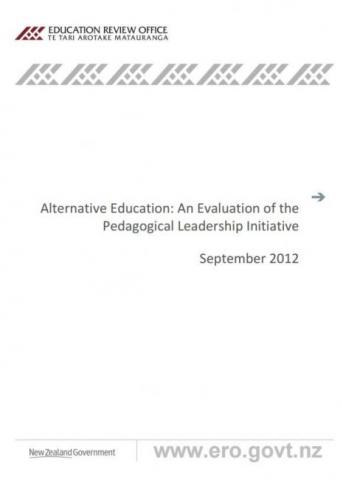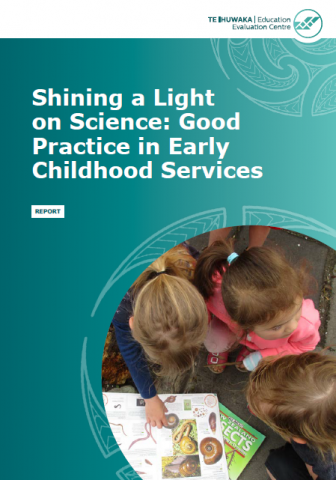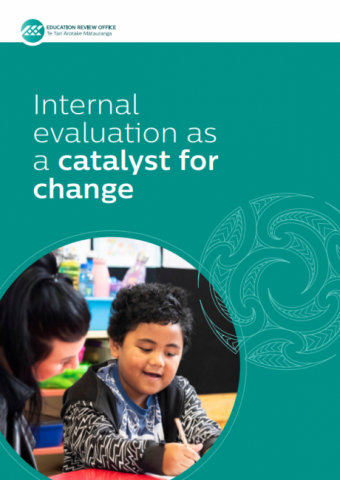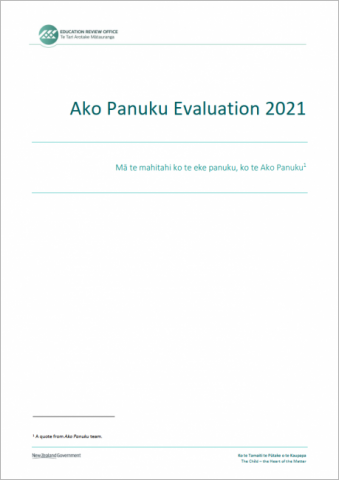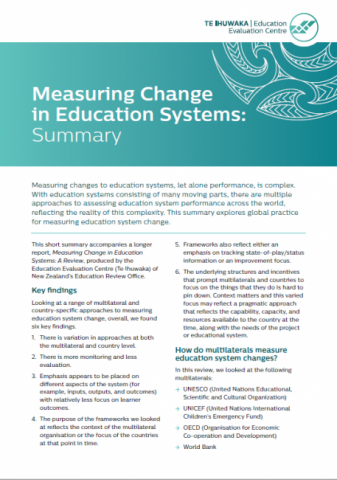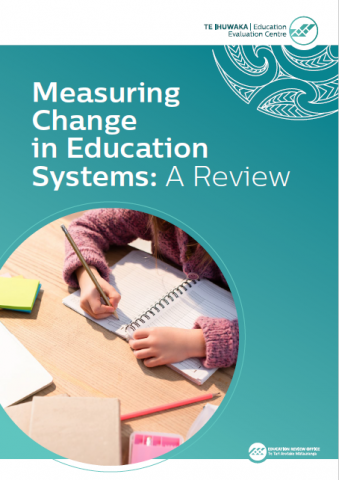Alternative Education: An Evaluation of the Pedagogical Leadership Initiative
Published: 02 Oct 2012
In 2011 the Ministry of Education introduced funding for pedagogical leadership in alternative education to improve the quality of teaching and learning. This evaluation examined the impact of that funding initiative by looking at the work of 10 clusters providing alternative education. It also identified a set of principles to provide guidance on good practice.
- Audience:
- Schools
- Content type:
- Research
- Topics:
- Alternative education (AE)
- Private training organisations
- Church-based groups
